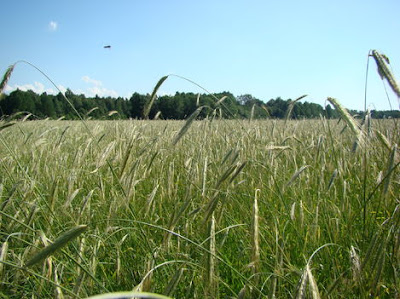So, how Nordic are we? And does it really matter?
(I realised I've wanted to post about this for a while now. So this is a post of snippets, all of which have something to do with why I feel Estonians should be regarded more Nordic, rather than Baltic.)
not to be confused with Scandinavia/ns, where we have no claim.
"The term Baltic as a concept to group Lithuania, Latvia and Estonia has been criticized, as what the three nations have in common almost wholly derives from shared experiences of occupation, deportation, and oppression; what these countries do not share is a common culture or identity."
So.
I'm really confused as to why I'm so interested in the "Baltic" status of Estonia. It's always felt a little mismatched and I think the sentence above explains it really well - for all that we have to be proud of as a nation, it seems sad that the pigeon-hole where we belong on the map of Europe is based on suffering and loss.
Culturally and linguistically it doesn't take a rocket-scientist to figure out where we stand in relation to other Nordic countries, or to Latvia and Lithuania. The Baltic states - the brave states, the states that did a great thing, the states which stood shoulder-to-shoulder and helped one another gain independence, and so on. And that of course is a bond that will not vanish. A positive bond. A one-of-a-kind. History is too bloody and brutal for such an anomaly to fade away. But to form an exclusive group, a cell of nations based on this?
Of course this whole argument is two-sided. On one hand, it is easy to see the "Baltic" concept as rising from decades of oppression and occupation. On the other hand, the "Baltic" concept is one of independence, and joy, and freedom. Having said that, could we realistically distance ourselves from the suffering that brought with it this liberation however sweet? Or should we stick to it? Or should we look further back, before the rise of the Soviet Union, and go back to the cultural and linguistic ties and follow where they are so overtly leading?
"The Nordic countries are characterised by similar structures of their societies and cultural traits. This results not only from similar environmental realities and thus traditional livelihoods but also from a shared history."The shared history is there. And anyone who has visited Estonia and either one of our Nordic neighbours for example can see or rather sense the similarities.
As right as it feels to honour the events of the last 20-30 years, upholding them to such an extent feels like we're kind of off-track. Of course upholding the Baltic sign is necessary but should it define us? Especially when the rest of our history is calling us home, somewhere else.
The reason why this should be looked at now is because of how young we are as a country. We can always go "back to the roots", but would it not be better to do it now that we are still trying to get our feet firmly on the ground? The pace of development throughout Europe and the world is not showing any signs of slowing down so surely knowing and sensing where one is grounded can only be a good thing. Especially nations as small as us.
So.
Who cares?
Well. It seems politics of this kind do and do not matter. It is somewhat like highschool, or even kindergarden. What you do as an individual isn't really in direct coherence with the group you belong to. You can earn your stars and stripes how you wish, get the grades or not, and be either naughty or nice. The "mass" around you doesn't do that for you. However, the perception of you externally is in direct accordance with the cloud in which you hover, whether we like it or not. Obviously modern day politics are more advanced than schoolyard games and hierarchies. But some emphasis needs to be placed on the people. How do Europeans perceive one country or another? Tourism turns many cogs so therefore the "mass" cannot be dicounted for. And so, what is the difference whether the country in question is a Baltic one or a Nordic one?
The Danish flag, Dannebrog, the Nordic cross, fell from the sky during a battle in Tallinn, Estonia, according to Danish legend. Tallinn - the capital of Estonia - has got its name from two words: "taani" and "linn", meaning "Danish town". Estonia was passed back and forth between Denmark and Sweden until 1721 - almost a third into the 18th century.
"Víkingr frá Estland" - my absolute Viking-heritage dream-come-true. Turns out we were pretty hardcore. There's stories of Estonian Vikings in the Icelandic sagas.
Estonian Viking sailors - Oeselians - used ships with a high prow shaped like a dragon or a snakehead.
The main god of the Oeselians was Tarapita, thought to have strong links with Thor.
Geographically Baltic, Nordic at heart?
If the Gulf wouldn't be there..., M.



Estonian Viking sailors - Oeselians - used ships with a high prow shaped like a dragon or a snakehead.
The main god of the Oeselians was Tarapita, thought to have strong links with Thor.
Geographically Baltic, Nordic at heart?
If the Gulf wouldn't be there..., M.



No comments:
Post a Comment